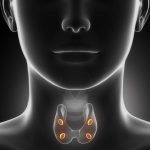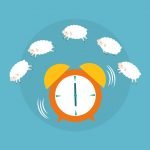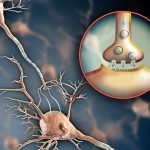Zinc Deficiency May Play a Role in Hypertension
Node Smith, ND
Lower-than-normal zinc levels may contribute to high blood pressure (hypertension) by altering the way the kidneys handle sodium. The study is published ahead of print in the American Journal of Physiology—Renal Physiology.
Zinc-deficiency-induced hypertension
Zinc deficiency is common in people with chronic illnesses such as type 2 diabetes and chronic kidney disease. People with low zinc levels are also at a higher risk for hypertension. The way in which the kidneys either excrete sodium into the urine or reabsorb it into the body—specifically through a pathway called the sodium chloride cotransporter (NCC)—also plays a role in blood pressure control. Less sodium in the urine typically corresponds with higher blood pressure. Recent research has suggested that zinc may help regulate proteins that in turn regulate the NCC, but a direct link between zinc-deficiency-induced hypertension has not been examined.
Researchers compared male mice with zinc deficiency to healthy controls with normal zinc levels. The zinc-deficient mice developed high blood pressure and a corresponding decrease in urinary sodium excretion. The control group did not experience the same changes. A small group of the zinc-deficient mice were fed a zinc-rich diet partway through the study. Once the animals’ zinc reached adequate levels, blood pressure began to drop and urinary sodium levels increased. “These significant findings demonstrate that enhanced renal [sodium] reabsorption plays a critical role in [zinc-deficiency]-induced hypertension,” the research team wrote.
The importance of zinc deficiency and its role in blood pressure is important for treatment
“Understanding the specific mechanisms by which [zinc deficiency] contributes to [blood pressure] dysregulation may have an important effect on the treatment of hypertension in chronic disease settings,” the researchers added.
 Node Smith, ND, is a naturopathic physician in Humboldt, Saskatchewan and associate editor and continuing education director for NDNR. His mission is serving relationships that support the process of transformation, and that ultimately lead to healthier people, businesses and communities. His primary therapeutic tools include counselling, homeopathy, diet and the use of cold water combined with exercise. Node considers health to be a reflection of the relationships a person or a business has with themselves, with God and with those around them. In order to cure disease and to heal, these relationships must be specifically considered. Node has worked intimately with many groups and organizations within the naturopathic profession, and helped found the non-profit, Association for Naturopathic Revitalization (ANR), which works to promote and facilitate experiential education in vitalism.
Node Smith, ND, is a naturopathic physician in Humboldt, Saskatchewan and associate editor and continuing education director for NDNR. His mission is serving relationships that support the process of transformation, and that ultimately lead to healthier people, businesses and communities. His primary therapeutic tools include counselling, homeopathy, diet and the use of cold water combined with exercise. Node considers health to be a reflection of the relationships a person or a business has with themselves, with God and with those around them. In order to cure disease and to heal, these relationships must be specifically considered. Node has worked intimately with many groups and organizations within the naturopathic profession, and helped found the non-profit, Association for Naturopathic Revitalization (ANR), which works to promote and facilitate experiential education in vitalism.
Node Smith graduated from the National University of Natural Medicine (NUNM) in 2017, and is currently licensed as a naturopathic physician in Oregon and working towards becoming licensed in Saskatchewan, Canada as well.










